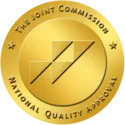Caffeine is frequently the sidekick that gets you through early mornings, late-night study sessions, and everything in-between.
But what happens when your daily latte or energy drink habit starts feeling less like a treat and more like a lifeline? Maybe you’ve noticed a headache when you skip your coffee, or the way your mood tanks without that midday pick-me-up. If this sounds familiar, your dependence on caffeine may be close to taking over your life.
Kicking a caffeine habit is a gradual detox where your body relearns how to function without the stimulant. Depending on how long you’ve been depending on it, you could see mild to severe withdrawal symptoms. These symptoms will likely last only a few days, but they may last up to a week or more. The focus should be on developing new habits that can allow for lower caffeine consumption overall.
What Is Caffeine?
Caffeine is a natural stimulant found in many substances we eat and drink, such as coffee beans, tea leaves, cacao pods, and kola nuts. It’s also added to many energy drinks, sodas, and over-the-counter medications like pain relievers.
Caffeine blocks adenosine, a neurotransmitter that helps the brain relax. When adenosine is blocked, you feel more awake, focused, and maybe slightly euphoric. The blood vessels of the brain also constrict. This is only a temporary effect, however. Over time, your brain may adapt to regular caffeine intake, requiring you to ingest more and more to achieve the same results.
How Does Caffeine Affect Your Body And Brain?
Caffeine’s effects are widespread and can vary depending on the amount consumed and your individual tolerance. Here’s a deeper look:
- Brain: Caffeine blocks adenosine and keeps you alert and awake. Too much caffeine can overstimulate the brain, leading to anxiety or restlessness.
- Heart: Caffeine has the ability to increase heart rate and blood pressure, making some people feel jittery after consuming too much.
- Digestive System: Caffeine stimulates the production of stomach acid, which can help with digestion but may also cause heartburn or acid reflux in some people.
- Muscles: Caffeine increases adrenaline levels, potentially enhancing physical performance by making your muscles work more efficiently.
- Metabolism: It can temporarily boost metabolic rate, helping you burn calories faster.
What Are The Signs You’re Dependent On Caffeine?
Dependence on caffeine can manifest in both physical and psychological ways. Here are some common signs:
- Physical Symptoms: Headaches, fatigue, or muscle aches when you skip your usual caffeine fix.
- Psychological Symptoms: Irritability, difficulty concentrating, or feeling like you “can’t wake up” without caffeine.
- Increased Tolerance: Needing more caffeine to feel the same effects you once did with smaller amounts.
- Cravings: Feeling a strong urge to consume caffeine, especially at specific times of the day (e.g., first thing in the morning).
Is Caffeine Addiction Dangerous?
While caffeine addiction isn’t typically life-threatening, it can have negative effects on your health and quality of life. Excessive caffeine consumption can lead to:
- Anxiety: High doses of caffeine can overstimulate the nervous system, causing jitters or panic attacks. It may be unhealthy to those with mental health conditions like generalized anxiety disorder (GAD).
- Insomnia: Caffeine can interfere with your sleep cycle, making it harder to fall or stay asleep.
- Digestive Issues: Caffeine stimulates stomach acid production, which can lead to heartburn or acid reflux.
- Heart Problems: In rare cases, very high doses of caffeine can cause irregular heartbeat or increased heart rate.

How Long Does It Take To Kick A Caffeine Habit?
The timeline for quitting caffeine varies depending on how much you consume daily, how long you’ve been consuming it, and your metabolism. For most people, the worst withdrawal symptoms subside within 7-12 days. Here’s a rough breakdown:
- First 24 hours: You might feel tired, irritable, or experience a mild headache.
- Days 2-3: Withdrawal symptoms peak, with headaches, fatigue, and mood swings being most common.
- Days 4-7: Symptoms begin to ease, though you may still feel occasional fatigue or cravings.
- Day 7 and beyond: Your body adjusts to functioning without caffeine, and you may notice improved energy levels and better sleep.
What Are The Most Common Caffeine Withdrawal Symptoms?
Caffeine withdrawal can be uncomfortable but is rarely dangerous. Common symptoms include:
- Headaches: Caffeine constricts blood vessels in the brain, and when you stop consuming it, those vessels expand, causing headaches.
- Fatigue: Without caffeine’s stimulating effects, you may feel fatigued.
- Irritability: Caffeine affects dopamine levels, and quitting can lead to mood swings or irritability.
- Difficulty Concentrating: You might feel brain fog or have trouble focusing.
- Muscle Aches: Some people experience mild muscle pain or stiffness.
- Nausea: In rare cases, withdrawal can cause stomach discomfort.
How Can You Manage Caffeine Withdrawal Symptoms?
Managing caffeine withdrawal requires a combination of self-care and patience. Here are some strategies:
- Stay Hydrated: Dehydration can cause debilitating headaches and give your body a disadvantage during detox, so drink plenty of water.
- Get Enough Sleep: Rest helps your body recover and reduces fatigue.
- Exercise: Light physical activity can work wonders on mood and energy levels.
- Eat Well: A balanced diet with plenty of fruits, vegetables, and healthy fats can help stabilize your energy.
- Gradual Reduction: Instead of quitting cold turkey, slowly reduce your caffeine intake over a week or two.
- Caffeine-Free Alternatives: Having caffeine-free beverages on hand like herbal teas, decaf coffee, or lemon water can provide comfort without caffeine.
Will You Feel More Energized After Quitting Caffeine?
At first, quitting caffeine may leave you feeling more tired as your body adjusts. However, over time, you’re more likely to experience more stable energy levels. Without the constant cycle of caffeine highs and crashes, your body can return to its natural rhythm, and you may feel more consistently alert and focused throughout the day. Additionally, better sleep quality from quitting caffeine can contribute to feeling more energized overall.
What Are The Factors That Influence Caffeine Detox?
Several factors can affect how your body responds to quitting caffeine:
- Daily Intake: The more caffeine you consume regularly, the more intense your withdrawal symptoms may be.
- Genetics: Some people metabolize caffeine faster than others, influencing how quickly they detox.
- Lifestyle: Stress, sleep quality, and diet can impact how your body handles caffeine withdrawal.
- Method of Quitting: Gradually reducing caffeine intake (e.g., cutting back by one cup of coffee daily) can make the process easier than quitting cold turkey.
- Support System: Having friends, family members, or a community to encourage you can make a big difference in staying motivated and focused.

Benefits Of Quitting Caffeine
Quitting caffeine can have several positive effects on your health and well-being:
- Better Sleep: Without caffeine disrupting your sleep cycle, you may fall asleep faster and enjoy a deeper, more restful sleep.
- Reduced Anxiety: Caffeine can exacerbate anxiety, and quitting may help you feel calmer.
- Stable Energy Levels: Without the highs and crashes of caffeine, your energy levels may become more consistent throughout the day.
- Improved Digestion: Caffeine can irritate the stomach, and quitting may help alleviate issues like acid reflux or heartburn.
- Lower Blood Pressure: Caffeine can temporarily raise blood pressure, and quitting may help keep it in a healthier range.
- Financial Savings: Cutting out daily coffee runs or energy drinks can save you money over time.
Natural Ways To Boost Energy Without Caffeine
If you’re looking to reduce your caffeine intake levels but still need an energy boost, try these natural alternatives:
- Exercise: Even a short walk can increase blood flow and release endorphins, boosting your energy and mood.
- Hydration: Dehydration can cause fatigue, so drink plenty of water throughout the day.
- Healthy Snacks: Foods rich in complex carbs, protein, and healthy fats (like nuts, fruits, or yogurt) can provide sustained energy.
- Naps: A 45-minute nap (or 90-minute nap, to have a full REM cycle) can help recharge your brain without leaving you groggy.
- Sunlight: Exposure to natural light can help regulate your circadian rhythm and improve alertness.
- Breathing Exercises: Deep breathing can increase oxygen flow to your brain, helping you feel more awake.
If you’re used to reaching for caffeinated drinks, try these alternatives:
- Herbal Teas: Chamomile, peppermint, or rooibos teas are naturally caffeine-free and can be soothing.
- Golden Milk: This warm drink made with turmeric, ginger, and milk (or a plant-based alternative) can be both comforting and anti-inflammatory.
- Decaf Coffee or Tea: These options provide the flavor of your favorite drinks with extremely low caffeine.
- Fruit-Infused Water: Add slices of citrus, berries, or cucumber to water for a refreshing twist.
- Smoothies: Blend fruits, leafy greens, and a protein source like yogurt or nut butter for a nutrient-packed energy boost.
Heal From Stimulant Addiction at Eagle Creek Ranch Recovery
If you’re struggling with stimulant addiction, including caffeine or other substances, Eagle Creek Ranch Recovery offers a holistic approach to recovery. Our programs focus on addressing the root causes of addiction through therapy, lifestyle changes, and natural wellness practices.
By creating a supportive and nurturing environment, Eagle Creek Ranch Recovery helps people regain balance, rebuild their energy, and develop healthier habits for long-term well-being. Contact us today to kick addiction and find healthier ways of energizing your life.

Clinical Director
Kendall Maloof is the clinical director at Eagle Creek Ranch Recovery. She is a licensed marriage and family therapist and has held multiple leadership roles before settling here at Eagle Creek Ranch Recovery. Kendall received her master’s degree in marriage and family therapy from the Chicago School of Professional Psychology in 2016. Her career in mental and behavioral health began in 2014 when she took up internships in both the nonprofit and for profit sectors. She interned at multiple reputable companies, such as The Living Success Center and 449 Recovery in California.
In 2019, Kendall became the clinical director of Sunsets Recovery for Woman, a dual diagnosis program in southern California. Kendall is a natural leader. She has an incredible ability to problem solve and stay calm in any situation. Kendall never fails to show up when she is needed, and her calm demeanor makes her team and clients feel at ease. Eagle Creek Ranch Recovery is proud to have Kendall as our clinical director.



